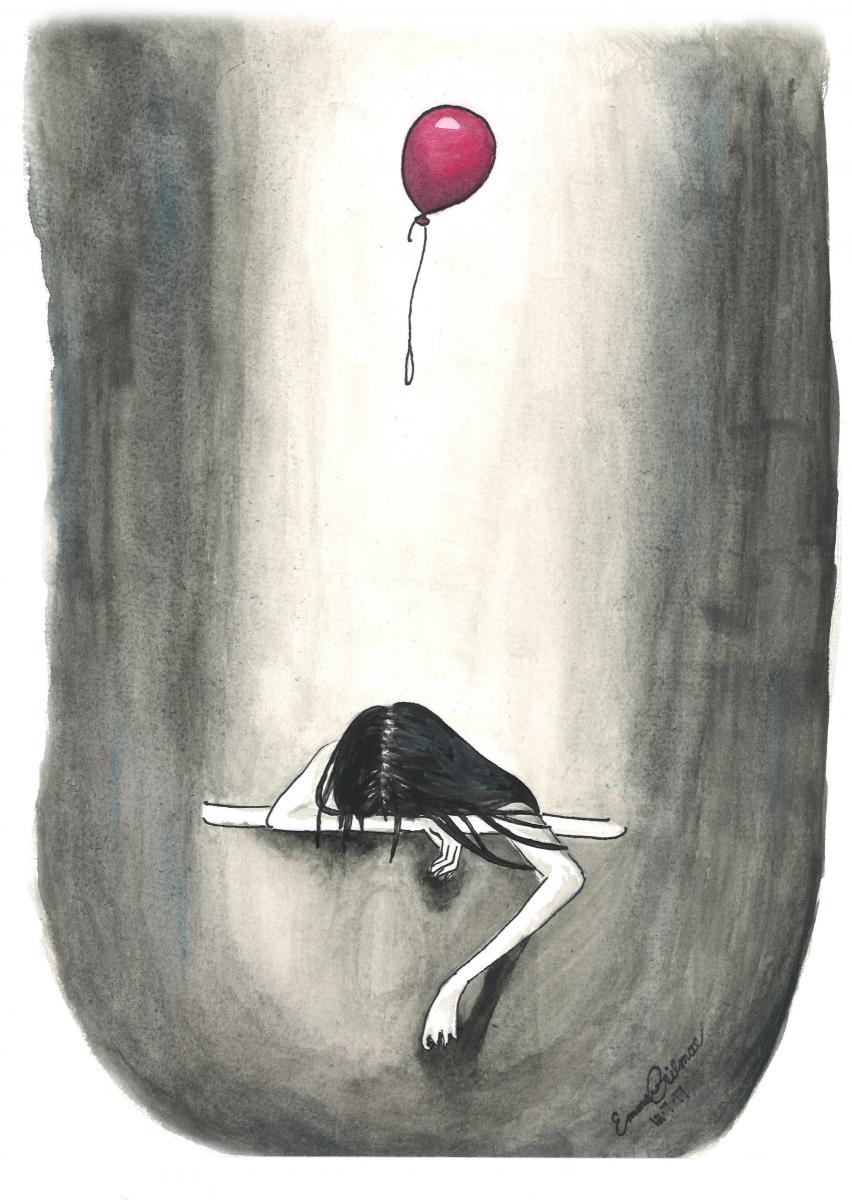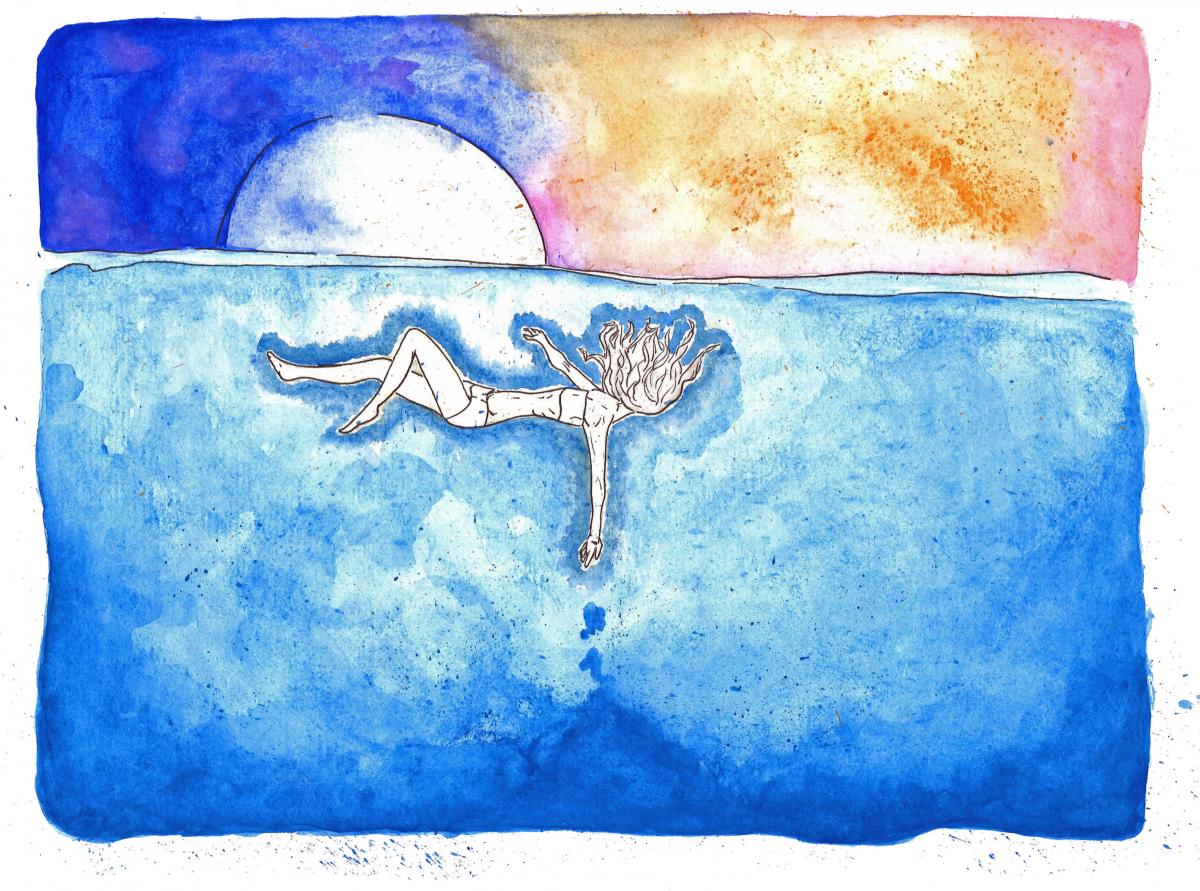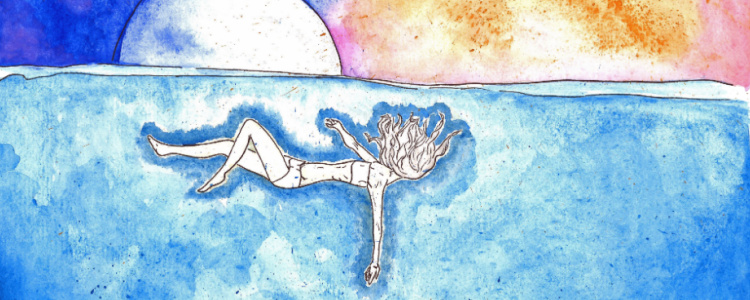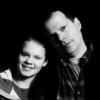Not Flesh of My Flesh
I knew these words before I ever remember hearing them spoken to me. They were lovingly repeated to me by my mother throughout my childhood and, as an individual adopted during my infancy, they provided a deep sense of security, love and connection to my family and the world.
Editor’s Note: Content Warning-This post includes mention of eating disorders thoughts/behaviors.
Not flesh of my flesh
or bone of my bone
You were not born beneath my heart but in it
I knew these words before I ever remember hearing them spoken to me. They were lovingly repeated to me by my mother throughout my childhood and, as an individual adopted during my infancy, they provided a deep sense of security, love and connection to my family and the world.
My mother Janet was a gift to my life as much as I was a gift to hers. After giving birth to my sister, my mother had a series of miscarriages which eventually resulted in her inability to bear more children. While at first overwhelmed with feelings of loss and punishment, she finally recognized that as the path she needed to travel for she and I to find each other. Her loving words above, the first poem she gifted to me (likely adapted from the beautiful poem Not Flesh Of My Flesh by Fleur Conkling Heyliger) certainly affirms that one need not share DNA to truly be family.
 While I embrace our destined-to-be mother and child relationship, there was another reality that brought us together. My mother, Janet, developed an eating disorder as a teenager in the late 1940s, long before public awareness of the disease. This demon which gripped her so tightly would test and take its toll on her total being throughout her life. You might say that I was born from an eating disorder since it was the physical effect that anorexia had on my mother in her 20s that led to my adoption. I felt its controlling presence within our home and within our relationship until it finally took her life in 2002.
While I embrace our destined-to-be mother and child relationship, there was another reality that brought us together. My mother, Janet, developed an eating disorder as a teenager in the late 1940s, long before public awareness of the disease. This demon which gripped her so tightly would test and take its toll on her total being throughout her life. You might say that I was born from an eating disorder since it was the physical effect that anorexia had on my mother in her 20s that led to my adoption. I felt its controlling presence within our home and within our relationship until it finally took her life in 2002.
Janet’s eating disorder deeply affected all of us who loved her. We were constantly overwhelmed with concern, frustration and helplessness by her stubbornness and strong will. These characteristics were amazing strengths at times but destructive and terrifying with her steadfast eating disordered behaviors.
Janet experienced anorexia at a time when information, empathy and treatment were different than today. Seeing someone you love starving in front of you and thinking that they just need to eat, it’s hard not to try and coax and coerce food down their throat. However, the more this was attempted, the stronger her refusals would become. My family had to trust that institutionalized care, when she hit rock bottom, was the only course of action. Yet she pleaded that if we truly loved her, we would never put her through that hellish experience again. But every time she returned home it was just a matter of months before she would lose herself to the disease again.
It was a stroke of luck that I found my mother’s book of poetry and journal essay on her struggle with anorexia. She would fill the pages of these books with raw expressions of her state of being and yearning for peace, bring them to her therapist for private discussion and then toss them into the trash. In 1991, she sent me a letter containing a few “mood poems” she had recently written. She told me that she had never written a poem in her life and they had just flowed from her. She selected a few to share with me, with instructions to just throw them out if they were too depressing. On a trip home not long afterwards, I happened to look inside the garbage can in the garage and there was a discarded journal titled Koans, Mood Poems that contained the entire collection of her poetry and an essay titled “My Story Of Anorexia.” I put the journal safely away in a keepsake box.
Janet was four months away from her passing when she met my first child, Emma. I had quietly hoped that somehow a new grandchild could inspire a recovery from her anorexia that had almost completely consumed her. I so wanted the two of them to get to know each other and share a bit of life together. At their meeting, the love in her eyes and heart shone through and amidst all her pain there was a beautiful moment between grandmother and granddaughter, with a look that can be seen in so many photos of her with her own children. As with so many times before, she apologized for all she had put us through with her eating disorder and vowed to get better. I had learned in my late 20s that pleading or getting mad could not exorcise the demon that held her so tightly and I remember telling her how much I loved her and thanking her for being the amazing mom that she was. It would be our last time together.
This disease or demon (as Janet often named it in her writing) devastates not only the afflicted but all who try to understand and support them. She was so much more than the disease that she fought over six decades. To me, my mother’s writings reveal the shape and form of the demon that lived in my home throughout my childhood and always lurked near and within my mother.
 Because of the intensity and despair within Janet’s writings, I waited until Emma was 15 before sharing them with her. To my surprise, Emma, who is an avid and talented young artist, began painting a watercolor for each of the poems as an interpretation of her grandmother’s expression. It’s been an amazing connection between a grandmother and granddaughter who had only met once and has allowed me to better understand my mother’s suffering while sharing her story with my daughter.
Because of the intensity and despair within Janet’s writings, I waited until Emma was 15 before sharing them with her. To my surprise, Emma, who is an avid and talented young artist, began painting a watercolor for each of the poems as an interpretation of her grandmother’s expression. It’s been an amazing connection between a grandmother and granddaughter who had only met once and has allowed me to better understand my mother’s suffering while sharing her story with my daughter.
From her found poetry and writings she has left a gift of her expression, allowing a glimpse from the inside out into a lifetime battle with an eating disorder.
Brian Gilmore is a school counselor and filmmaker. He lives in Bellingham, WA with his family, including his daughter Emma. Brian arranged and edited KOANS: My Story of Anorexia from the collection of his mother’s poetry, letters, and journal. KOANS is available from Village Books and other online booksellers. Emma Gilmore graduated high school in June and will be majoring in psychology at the University of British Columbia. Emma provided the illustrations for KOANS. Brian and Emma hope that by sharing KOANS, they may provide some insight, empathy, and understanding for those suffering from an eating disorder.





